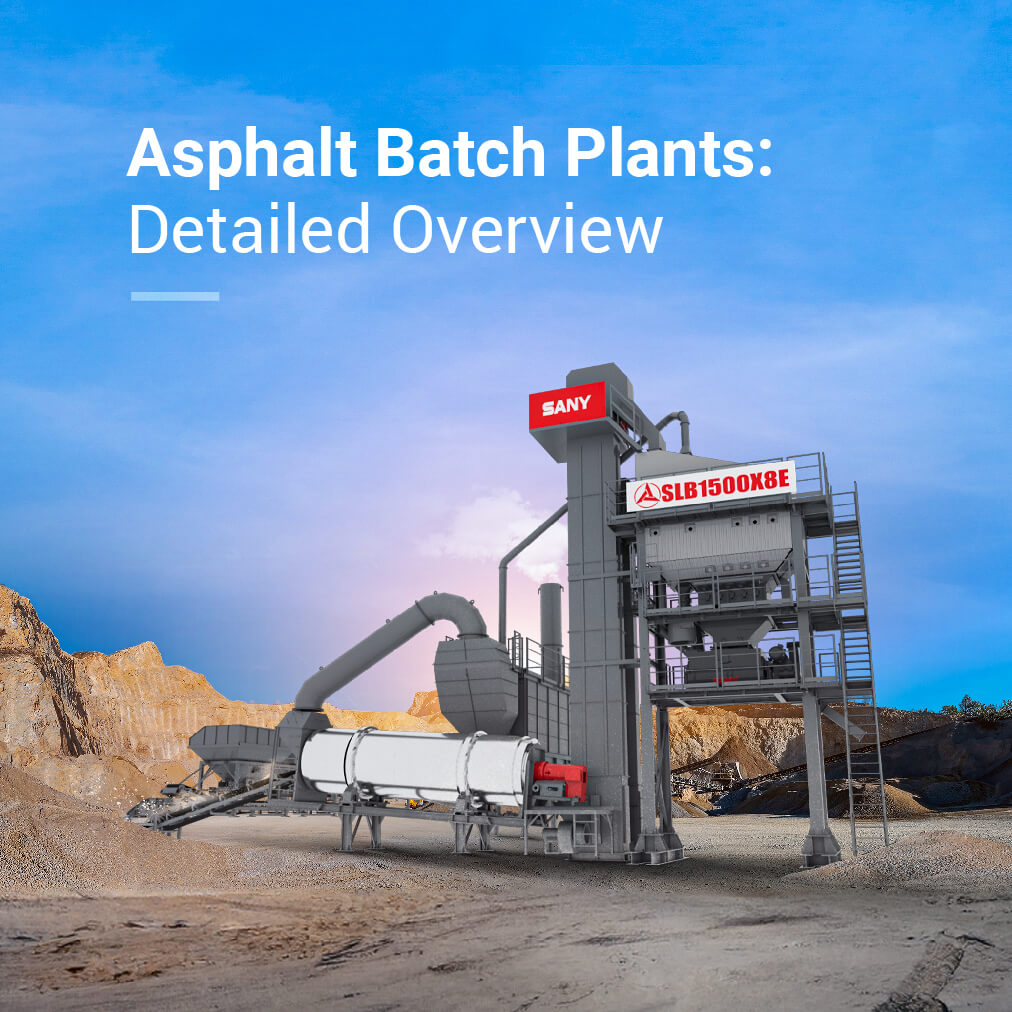Understanding how an asphalt batch plant works is essential for ensuring the production of high-quality asphalt, which plays a vital role in building durable and long-lasting roads. These plants not only help improve construction efficiency but also optimize material usage, making them a critical component in modern infrastructure development. Gaining knowledge about asphalt batch plants is key to maintaining strict quality control, reducing the risk of defects, and ensuring that the final product meets the specific needs of each project. In this blog, we'll take a closer look at what an asphalt batch plant is, how it operates, and why it's so important in road construction projects. An asphalt batch plant is a facility designed to produce hot mix asphalt (HMA) in batches rather than continuously. This method allows for greater flexibility and precision in mixing different types of asphalt, such as HMA, WMA (warm mix), and CMA (cold mix). The ability to customize mix designs makes these plants ideal for a wide range of road construction projects, from small-scale repairs to large highway developments. Here are the main components that make up an asphalt batch plant: Cold Feeder Bins: These bins store various sizes of aggregates and feed them into the system in controlled amounts. They ensure a steady and accurate supply of raw materials to the drying drum. Conveyor Belt: The conveyor transports cold aggregates from the feeder bins to the dryer drum, ensuring continuous and consistent feeding of materials into the system. Drying Drum: This component heats the aggregates to remove moisture and reach the required temperature. It uses a powerful burner to ensure efficient heating. Elevator: The elevator lifts the heated aggregates from the drying drum to the vibrating screen, facilitating smooth material transfer for further processing. Vibrating Screen: The screen separates the hot mix into different sizes, ensuring proper classification before mixing. Hot Bins: These bins temporarily hold the heated and classified aggregates before they are weighed, ensuring the right amount of material is ready for mixing. Weighing Systems: Precise weighing systems measure the exact quantities of aggregate, filler, and bitumen, ensuring the correct proportions in the final mix. Pugmill Mixing Unit: This unit thoroughly mixes the ingredients to create a uniform and high-quality hot mix asphalt. Dust Collection System: Designed to capture and remove dust, this system helps reduce pollution and maintain environmental compliance. Control System: An advanced control system offers both manual and automated control, allowing operators to monitor and adjust operations for optimal performance. The process begins with aggregates stored in cold feeder bins, where they are measured and transported via a conveyor belt to the drying drum. There, they are heated using a powerful burner to remove moisture and achieve the desired temperature. The heated aggregates are then lifted by an elevator to the vibrating screen, where they are separated by size and stored in hot bins. Next, precise amounts of aggregates, bitumen, and filler are weighed and fed into the pugmill mixing unit. The pugmill thoroughly blends these materials to create a homogeneous hot mix asphalt. The final product is then stored in a heated silo until it's ready for transport to the construction site. This batch process ensures precise control over the mix composition, resulting in high-quality asphalt that meets project specifications. Asphalt batch plants are crucial for modern road construction due to their many benefits. Here are some key reasons: Quality Control: These plants allow for precise control over the mix composition, ensuring that the asphalt produced is of the highest quality and durability. Versatility: They can produce different types of asphalt, making them suitable for a wide range of applications, from small repairs to major highways. Cost-Effectiveness: Efficient use of materials and energy makes these plants a cost-effective solution for long-term projects. Environmental Benefits: Modern plants incorporate dust collection systems and warm mix technologies, reducing emissions and promoting sustainability. Use of Recycled Materials: Many plants can incorporate reclaimed asphalt pavement (RAP), helping to conserve resources and reduce costs. Customization: These plants allow for easy adjustments to meet specific project requirements, ensuring that the final mix is perfectly tailored to the job. Asphalt batch plants are essential for producing high-quality asphalt that meets the demands of modern road construction. Their precision, flexibility, and efficiency make them a valuable asset in any infrastructure project. Sany India is one of the leading manufacturers of asphalt mixing plants in India. Our SLB1500X8E asphalt batch plant is designed for superior performance, with a capacity of 120 tons per hour at 3% moisture content. With a maximum power of 275 kW, this plant is built for efficiency and reliability. It reduces preparation time by 15% and improves fuel efficiency by 10%, offering a cost-effective and eco-friendly solution for your road construction needs. Choose Sany India’s Asphalt Batch Plant for unmatched performance, quality, and value in your next project. Forged Ring,Stainless Steel Ring,Rolled Aluminum Rings,Aluminum Forged Rings Suzhou SNK Machinery Equipment Co.,LTD , https://www.snkforging.com
What is an Asphalt Batch Plant?
Key Components of an Asphalt Batch Plant
How an Asphalt Batch Plant Works
Why Asphalt Batch Plants Are Essential for Construction Projects
In Conclusion